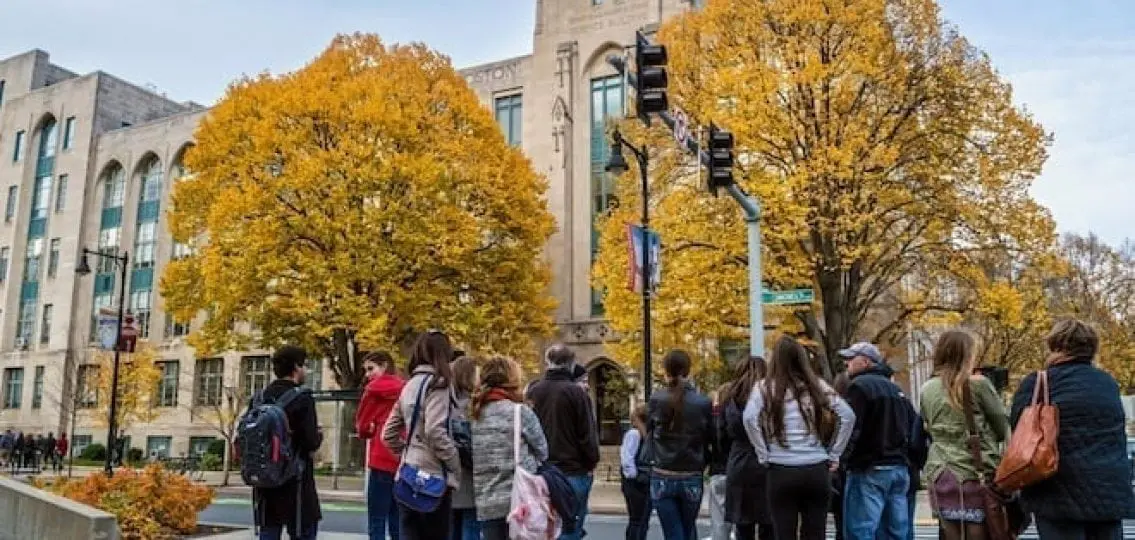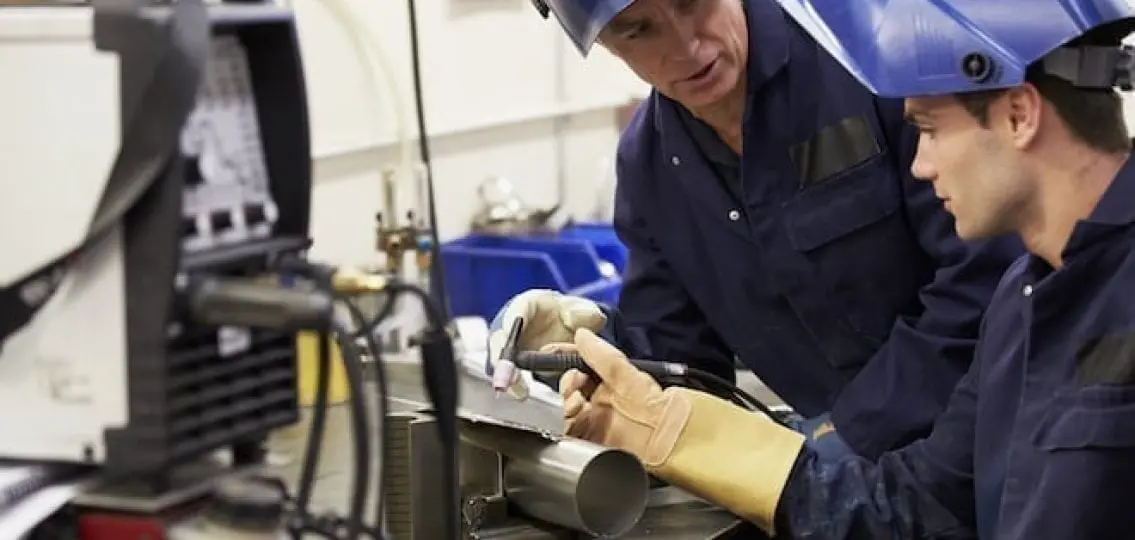If you’re like me and you went to a traditional four year college, you may not have heard of Co-operative education, also known as co-op. Before our oldest son started the college tour process, I had no clue about co-op education programs in college. But now I’m a big advocate. The short explanation is that co-operative education combines classroom and “real world” experience. And our oldest son’s co-op experience has completely changed the way we look at college.

When he was in high school, it’s fair to say he wasn’t much of a student. Oh, he was plenty smart – I think he missed two questions on the ACT – but he just wasn’t motivated by grades. He didn’t really care about getting an A in chemistry or acing that Heart of Darkness quiz. School was drudgery, an agonizing repetition of dumb boring stuff that he had to do, punctuated only occasionally by moments of genuine enthusiasm.
Watching him shuffle off glumly into the grey Cleveland morning to school every day was anxiety-producing. I loved school – why didn’t he? He trudged through high school, weary of the tests and homework that never seemed to end.
On the car ride home one day, he turned to me and asked “When does it get easier? Is college just another four years of this?” Great – four more year of what he already hated. Who wants to pay a king’s ransom to send that attitude to college?
When it came time to look at colleges, he figured he liked math so maybe he’d look into engineering. So we took him on a bunch of campus tours and sat through lots of engineering presentations.
He would sit slumped in his chair, eyes half-closed, listening to students at different universities go on about their various research opportunities and professor-supervised studies.
He was bored, bored, bored. “Maybe a gap year,” we thought.
On a whim, we toured a university with a mandatory co-op education program. The presenter explained that under their co-op college programs, engineering students earn a four-year degree in five years and alternate back and forth between semesters studying in the classroom and working in their chosen career field in jobs which integrate the concepts they are learning in the classroom. Students gain a full year of work experience in their career fields before graduation, and get to “test drive” their degrees to make sure that’s really what they want to do, all while earning thousands of dollars to help finance their degree.
“And whenever you start to feel mentally burned out at the end of a semester, you know that you’re going to shift gears soon into co-op, and vice versa,” she noted. “Students tell us they feel fresher mentally because they are continually moving back and forth.”
That was the moment right there. Out of the corner of my eye, I saw him sit up and lean forward, listening to every word. A break from the monotony of the classroom, and active hands-on learning? Finally – something connected.
Four years later, he is an entirely different student.
So far, he’s had three different semester-long co-ops learning and living what a mechanical engineer actually does.
His longest co-op has been at the largest steel mill in the country which produces steel 24/7 – a great experience for a mechanical engineer, as things have to be maintained constantly to keep production lines from breaking down. He gets how the theoretical concepts he learned in (terrifyingly-named) classes such as Heat Transfer and Fluid Dynamics apply in everyday scenarios. Those concepts make sense now in a way they didn’t on a white board.
Then there are the skills that he wouldn’t have been able to learn in a classroom. Collaborating with engineers thirty years older than he. Working closely with veteran hourly employees who call him “College Boy” while they teach him all the practical stuff professors don’t (“You won’t learn this in class – THIS is the best way to wire a semiconductor.”). Presenting his projects before senior management at a Fortune 500 company. Currently, he’s managing a team of subcontractors on a $250,000 project.
Along the way, he’s also learned how to weld, become a certified crane operator, and mastered how to take apart a motor and a circuit board. He’s also acquired some of those soft skills important to employers, such as showing up for work on time, working on a team, meeting deadlines, and receiving criticism.
Somewhere in his first co-op, he discovered that he loved working and – get this – really liked earning money. When it comes to competing for jobs after graduation, he will have the advantage of an entire year of experience.
Academics have taken on new significance to him. He’s now willing to spend hours studying crushing coursework, mastering Differential Equations and some horrible class called Kinematics because he understands why an engineer needs to know it. He has some skin in the game.
He is intentional with his course selections, and wants to use his final year electives to take more circuitry courses because he has seen on co-op how helpful that knowledge would be. From a kid who almost failed his second semester senior year of high school, now he has a 3.9 GPA. He is thriving.
The changes we have noticed in him are a continual source of wonderment. The maturity, the self-sufficiency, the work ethic.
The kid who needed dynamite to blast him out of bed in high school is now up at 5:30 a.m. every day, zipped into coveralls, and ready for whatever problem-solving the day will bring.
He’s learned what it’s like to work a long, physically demanding day. And he’s learned the satisfaction of getting paid for it. His soft mama’s boy hands have toughened into a man’s hands with callouses and grease under his nails. He now appreciates that going to college is a privilege and that some of those hourly union employees he works with (who don’t have a college degree) are just as smart as he is. His co-op experience has opened his eyes to the real world in ways that four years on a leafy quad with football Saturdays and summers spent back at home caddying or mowing lawns simply could not have.

Co-op definitely isn’t a traditional college experience, and it isn’t right for everyone. But in our experience, the benefits far outweigh the negatives. All three of our kids chose to attend colleges with co-op education programs. Maybe co-op is the right fit for your student, too.




